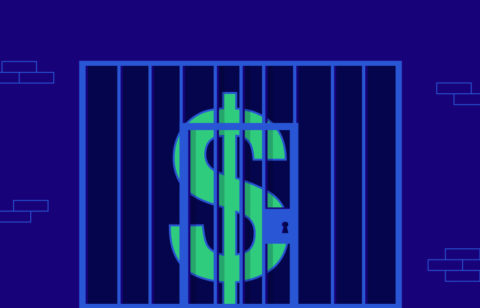Forgiveness is such a pleasant-sounding word. When we do something we know was wrong, doesn’t it feel good to hear the words, “you’re forgiven”? The Merriam-Webster online dictionary offers two definitions of the word forgive. The first is “to give up resentment of or claim to requital for as in forgive an insult. The second is “to grant relief from payment of as it to forgive a debt”. If you’re heavily in debt, you’d probably love to have your debts forgiven. But is this really possible?
Mortgage debt
Congress enacted a law in 2007 called the Mortgage Forgiveness Debt Relief Act. This provides tax relief or forgiveness to homeowners who lost their homes due to a foreclosure or who had their loans restructured. It covers the years 2007 through 2012 and allows homeowners to exclude up to $2 million of debt that was forgiven or canceled by a mortgage company. In other words, if you had mortgage debt canceled or restructured during those years, you probably won’t have to pay income tax on the amount of debt that was forgiven.
Debt settlement and debt forgiveness
Are you familiar with debt settlement? This is where people who are seriously in debt contact their creditors and negotiate settlements. For this to work people must be at least six months in arrears on their unsecured debts such as medical bills and credit card debts.
Debt negotiation
Creditors are usually willing to negotiate settlements if you can convince them there is no way you can pay everything you owe and that if they don’t cooperate you’ll be forced to declare bankruptcy. Since most lenders would rather get half a loaf rather than no loaf at all, they’ll usually agree to settle and probably for much less than what you owe.
You must have the cash available
Creditors are never willing to settle unless you have the cash available to immediately pay the settlement. If you were able to settle a $4,500 debt for, say, $2,700 you would need to have $2,700 you could either wire the creditor or send as a cashier’s check. As you can imagine, this could be a real stumbling block.
What happens to the other $2,700
If you are able to negotiate a settlement for less than you owe, the money you didn’t pay is considered to have been forgiven by your creditor. To go back to the example in the previous paragraph, if you were able to settle a $4,500 debt for $2,700, the other $2,700 would be “forgiven” or would constitute debt forgiveness.
The difference between debt consolidation and debt forgivenessV
The major difference between debt settlement and debt consolidation is that with debt consolidation there is no debt forgiveness involved. Whether you choose to consolidate your debts through a loan, balance transfers or consumer credit counseling, there is no debt forgiven. If you owed $20,000 before you consolidated your debts, you’ll still owe the $20,000 until you pay if off.
Talk with your tax advisor
If your creditors report the money that was forgiven to the IRS, you could be required to pay taxes on it. How will you know you might be taxed? You would receive a 1099 form showing the debt you were forgiven as “miscellaneous” income. To be on the safe side, you should discuss this issue with your tax advisor. Of course, if you’re deeply in debt, you probably have more liabilities than assets so that debt forgiveness would have no effect at all on your taxes. – yet another reason why so many families choose debt settlement.






